In 2031, a disastrous flood hit the province of Almeria in southern Spain. The crisis created an opportunity to bring the fragmented local relationships together. A new model is invented through common land ownership, cooperative farming and cohabitation.

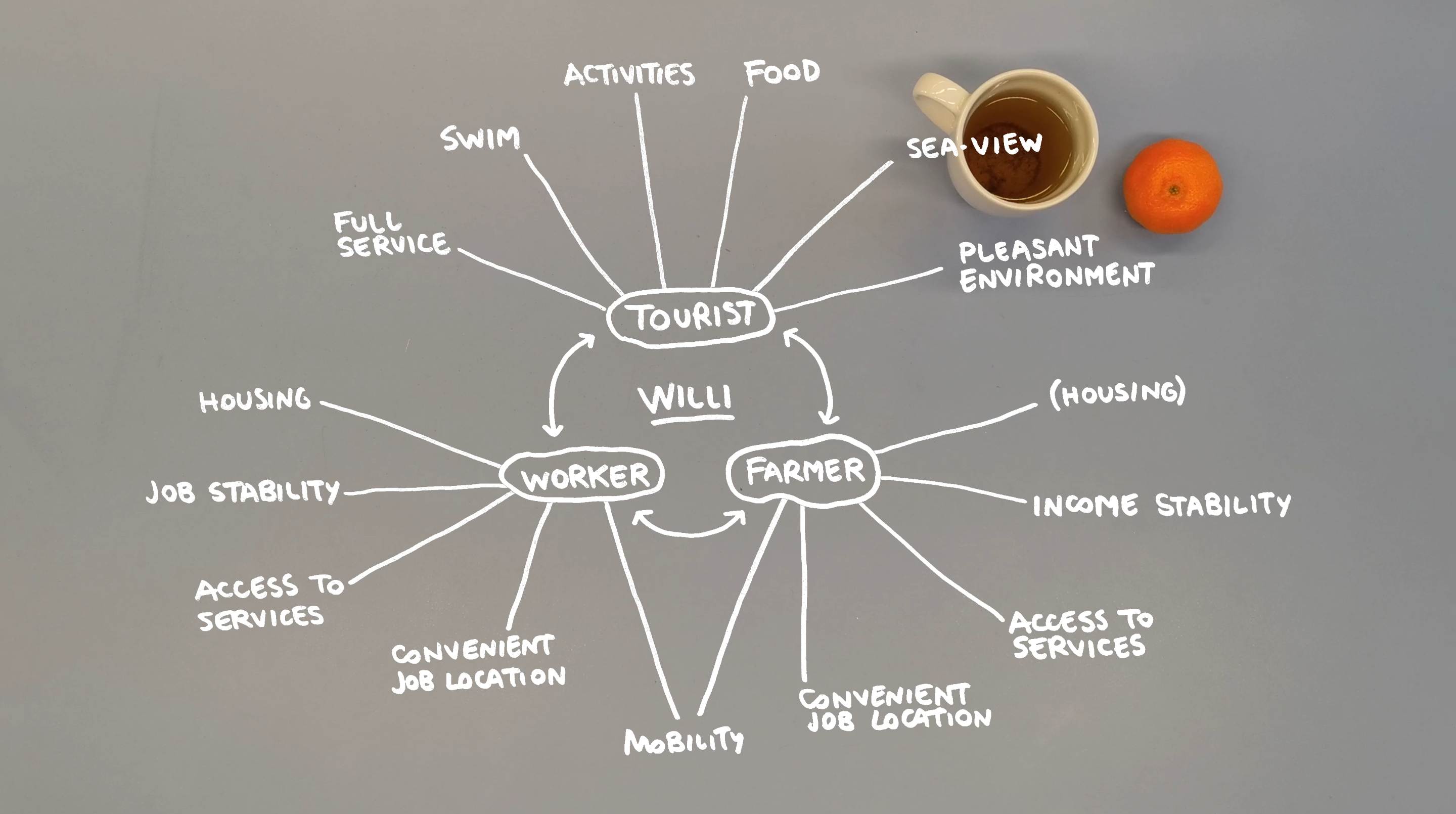
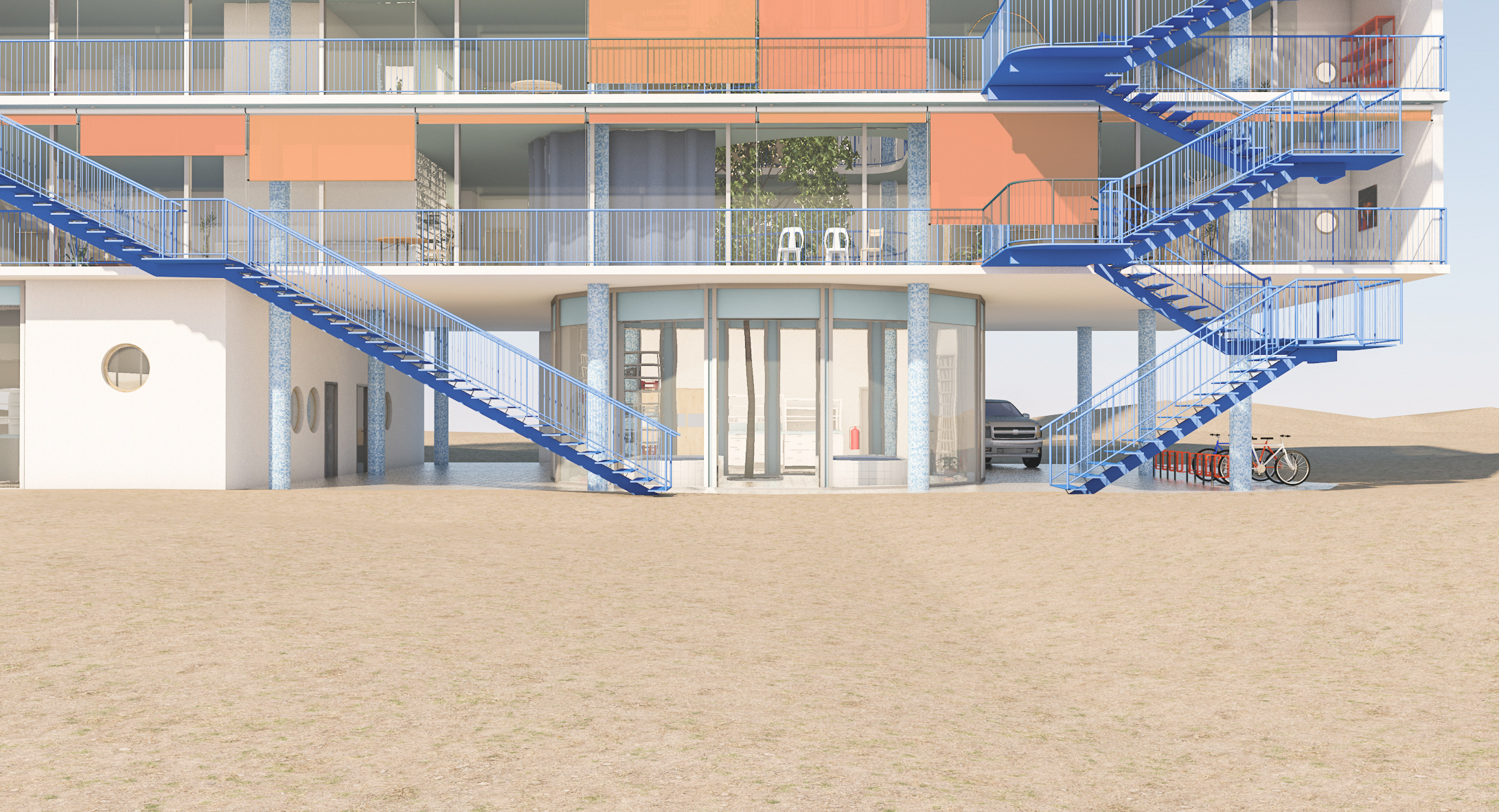
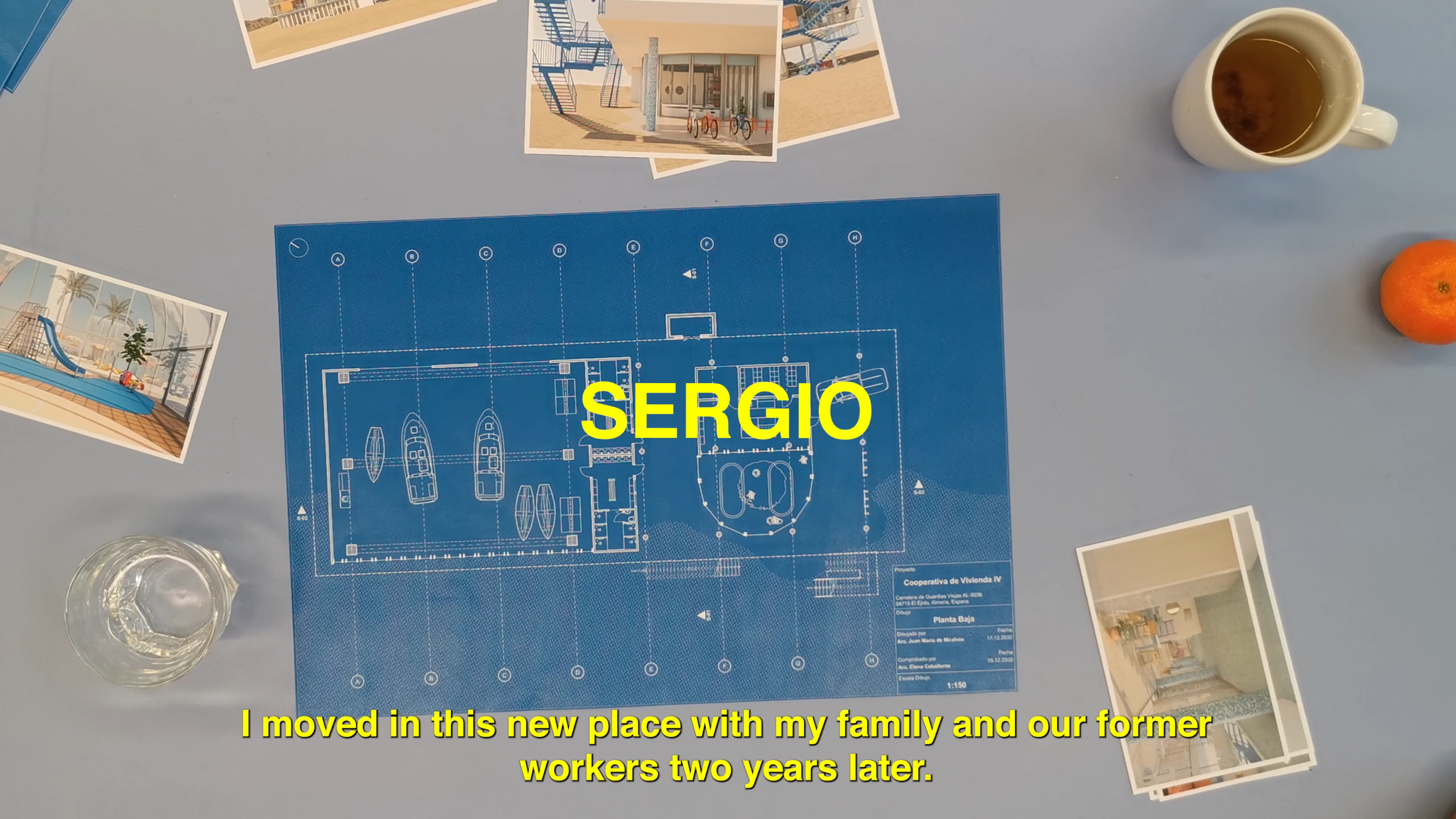

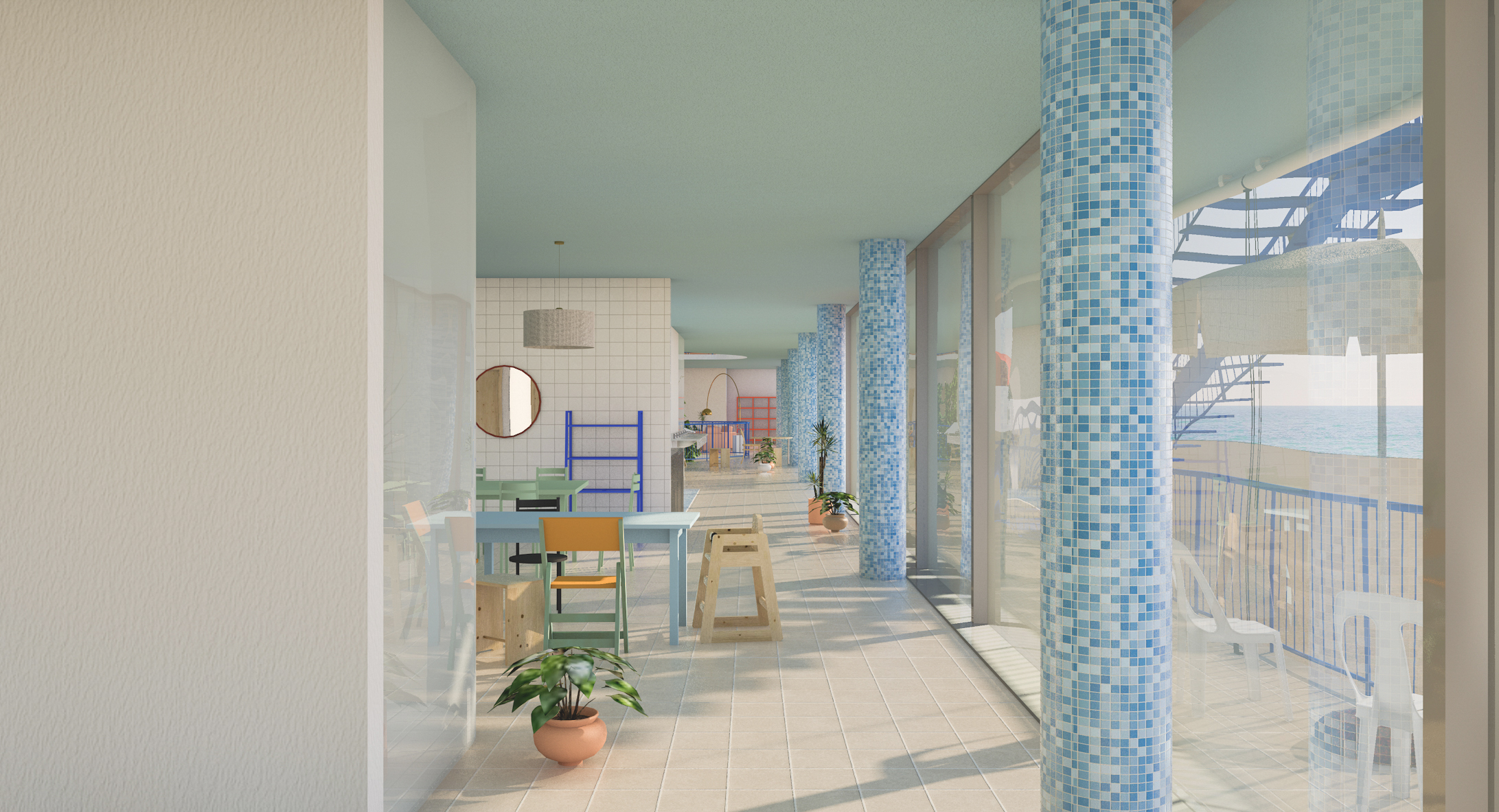

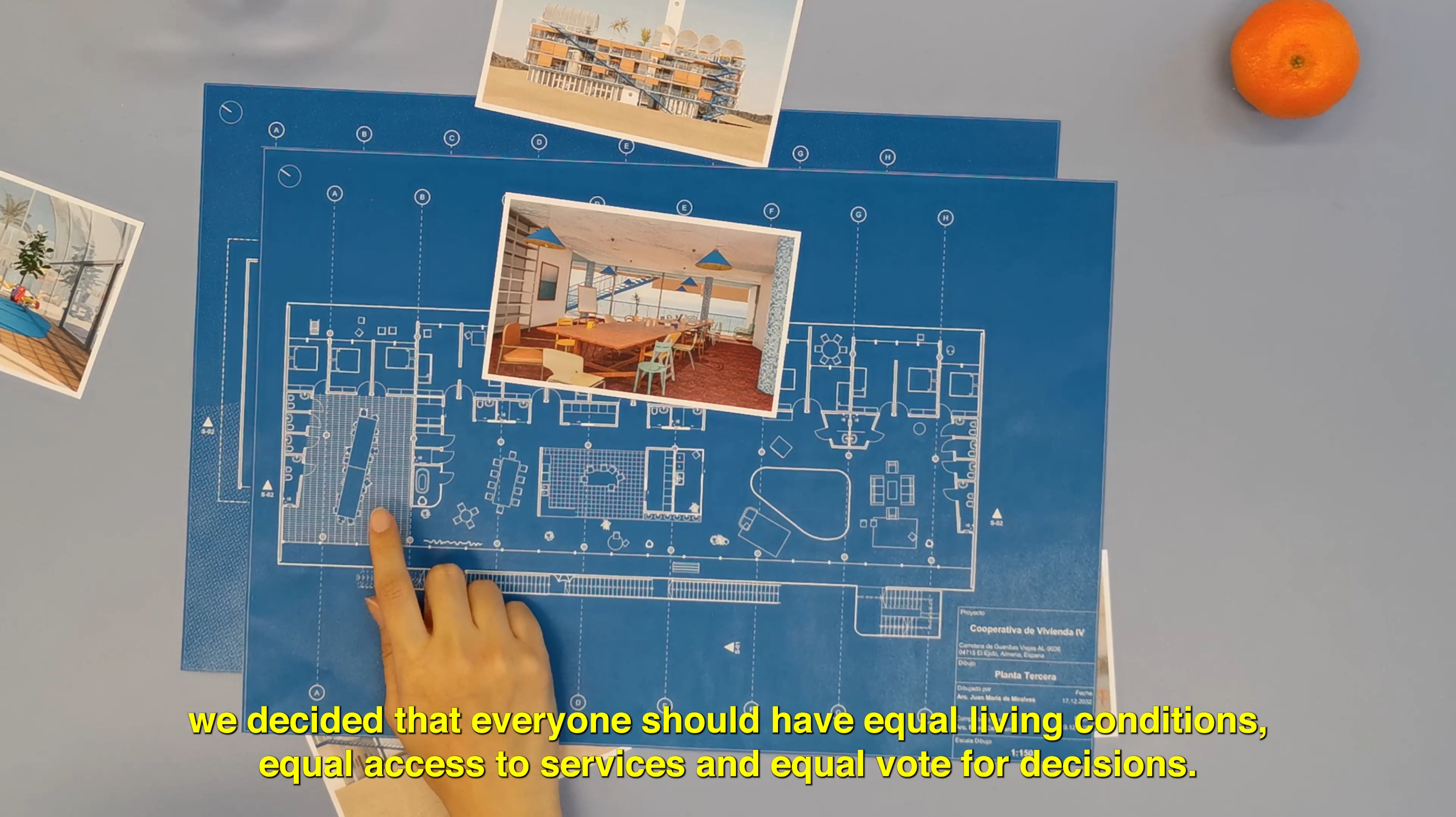


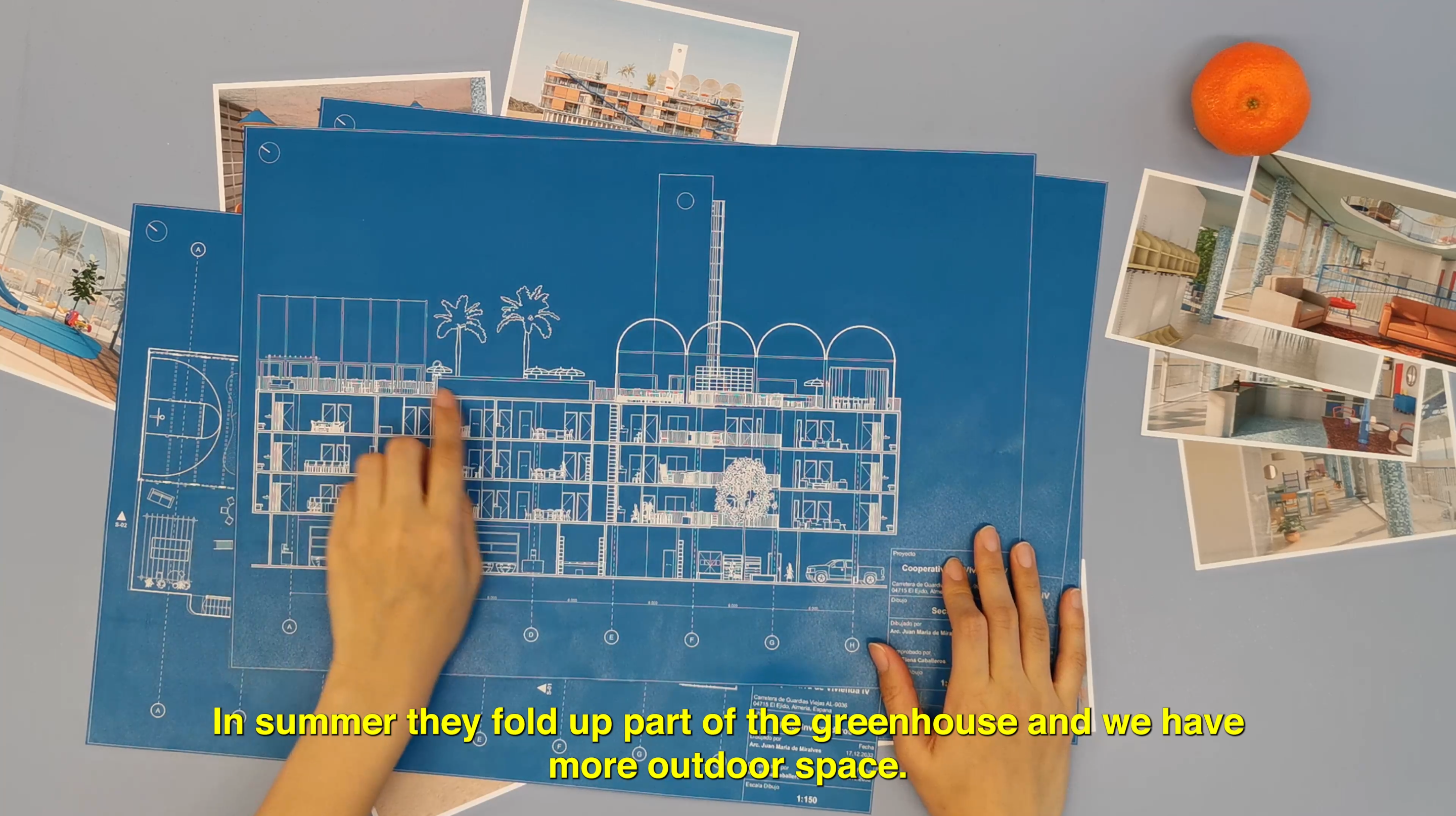

Future After Future Almería 2021 Studio Arno Brandlhuber ETH Zurich
with Giacomo Rossi
The southern-most province of Almería is a place where the global systems of food production and migration collide and take built form. Extracted resources, such as water, sand and soil; cheap labor, from eastern Europe and Africa; formal and informal settlements. All of this defines an area known as “plastic sea”, the largest greenhouse in the world: 32.000 hectares of plastic covered terrain.
In 2031, a very strong Mediterranean Hurricane hit Almeria with a week-long of rain and uncontrolled flooding. Hundreds of farmers and workers lost their jobs, 12,000 hectares of greenhouses at the coast were washed out.
Willi, a farmer from Zurich, was on a golfing holiday and regarded this crisis as an opportunity. He immediately gathered together the farmers with their insurance compensation and workers with some savings to build up a new cooperative for seaweed farming combined with housing for homeless farmers and workers, tourist industry of hotel and restaurant.
In 2036, farmers, workers and tourists are now under a collaborative relationship; connections among previously isolated groups are established and political representation is strengthened. Everyone has equal voting rights in the management of the now shared resources, both on land and at sea.
Migrant workers that were under a precarious state before now have a 3-year contract and legal representation. They work with tourists in summer season and in the greenhouses in winter, so their role in the economic system is not hidden anymore.
Farmers now get income from different sources, and it is a more stable model for them. Off-shore wind farming and spaces for remote workers from northern Europe allows the income to be diversified and the community to become more resilient when facing global factors such as climate change and competition from Morocco.
Seasonal tourist, who were previously completely isolated from the harsh reality of Almeria, now have a direct access to the local community and the mechanisms of the food industry are now more transparent to customers. They can visit the off-shore farms by boat, harvest seaweed and oyster as an experience, and later have them as fresh food.
In 2036, living together has reshaped the political landscape of Almeria. A cohabitation is established not only among different social groups, but also with the land and the sea. People finally realized that they must replace competition with collaboration and manage the resources in a sustainable way.
This short film was developed within the framework of the Studio of Arno Brandlhuber at ETH Zurich, between October and December 2021. It was informed by conversations with local union activists, workers, migrants, researchers and farmers that happened on site in Almería. It won the 3rd prize in the Open Political Spaces competition organized by Space Coordinator and the Seoul Metropolitan City Government; and was screened in Seoul in December 2022.
Giacomo Rossi, Qianer Zhu © 2021